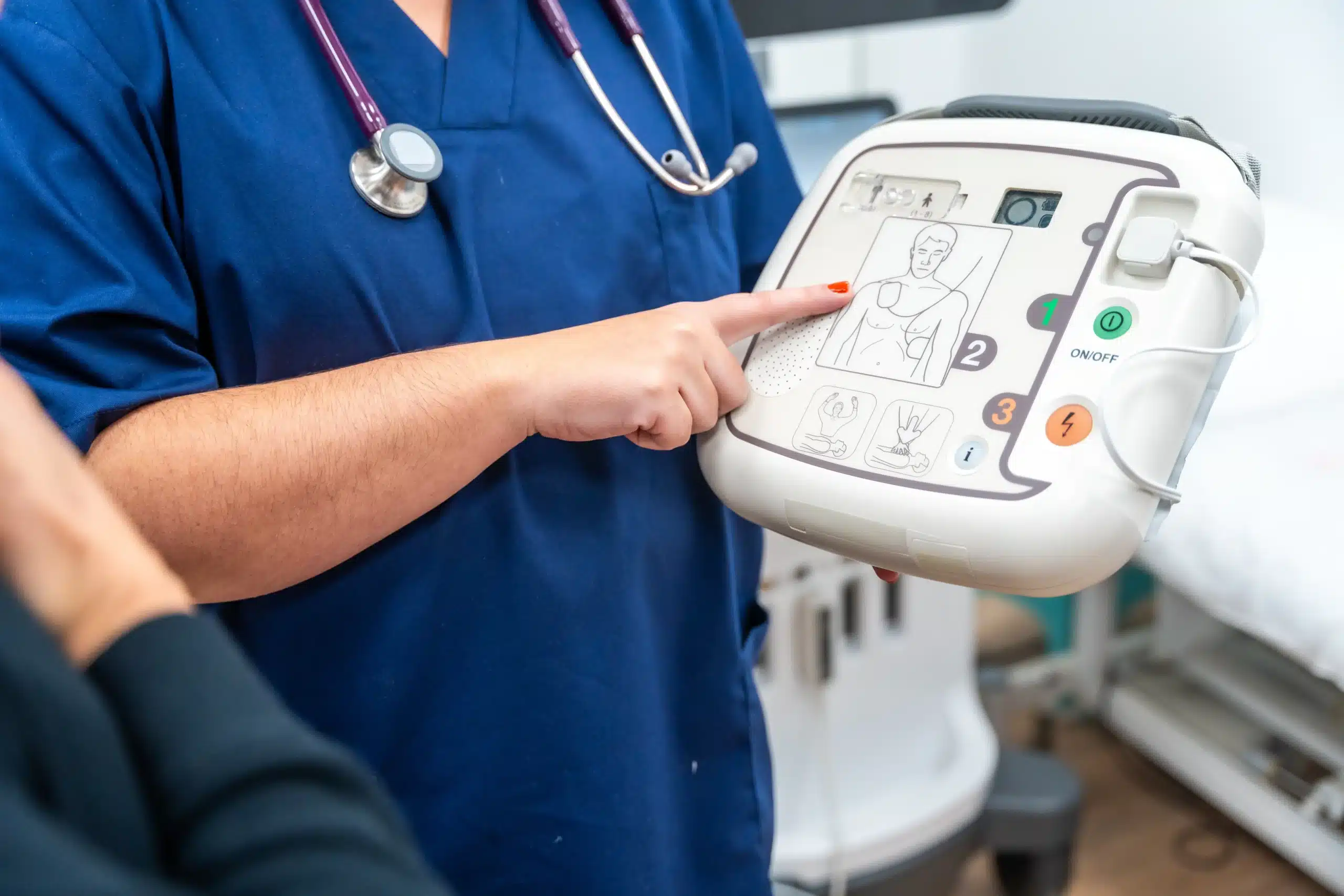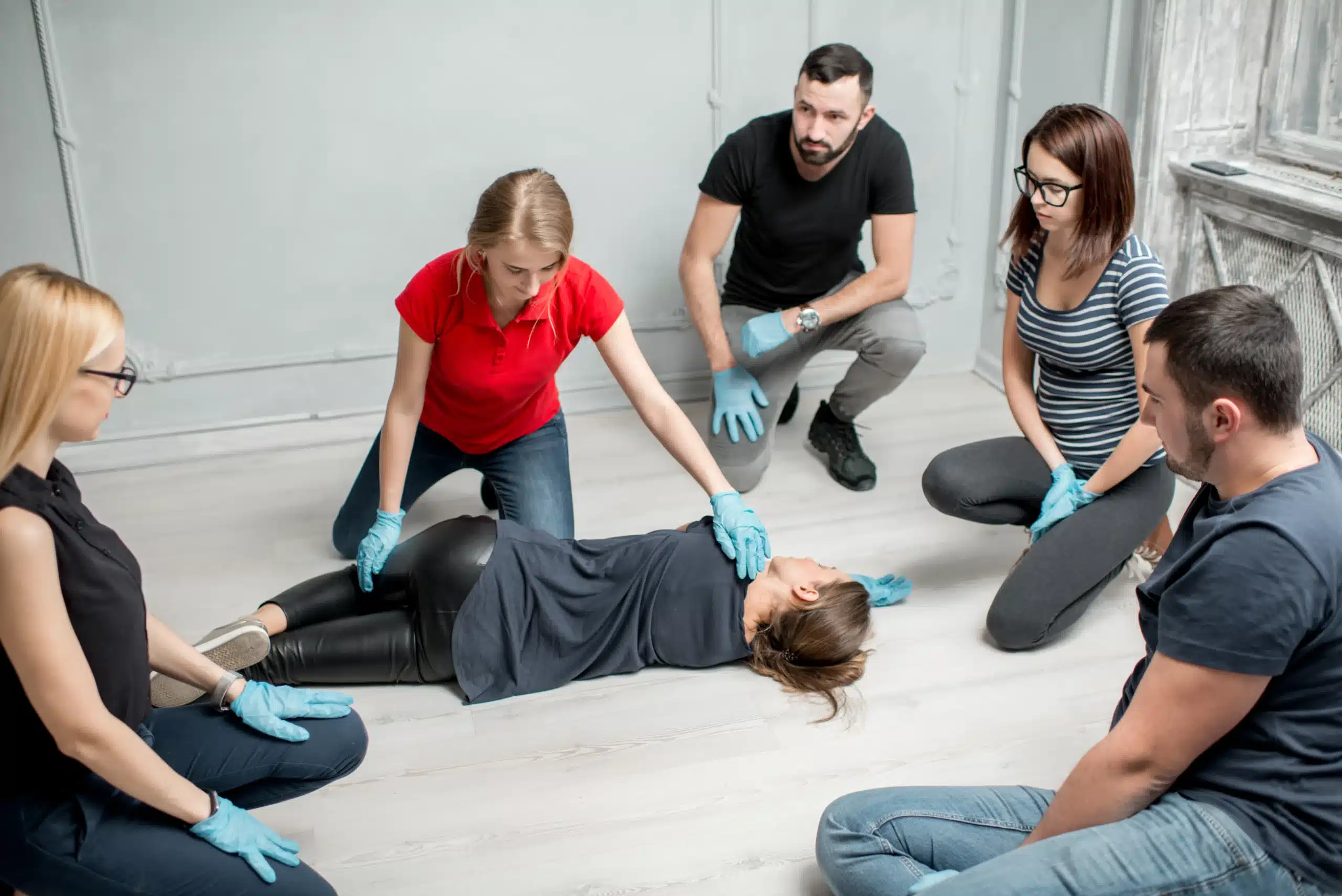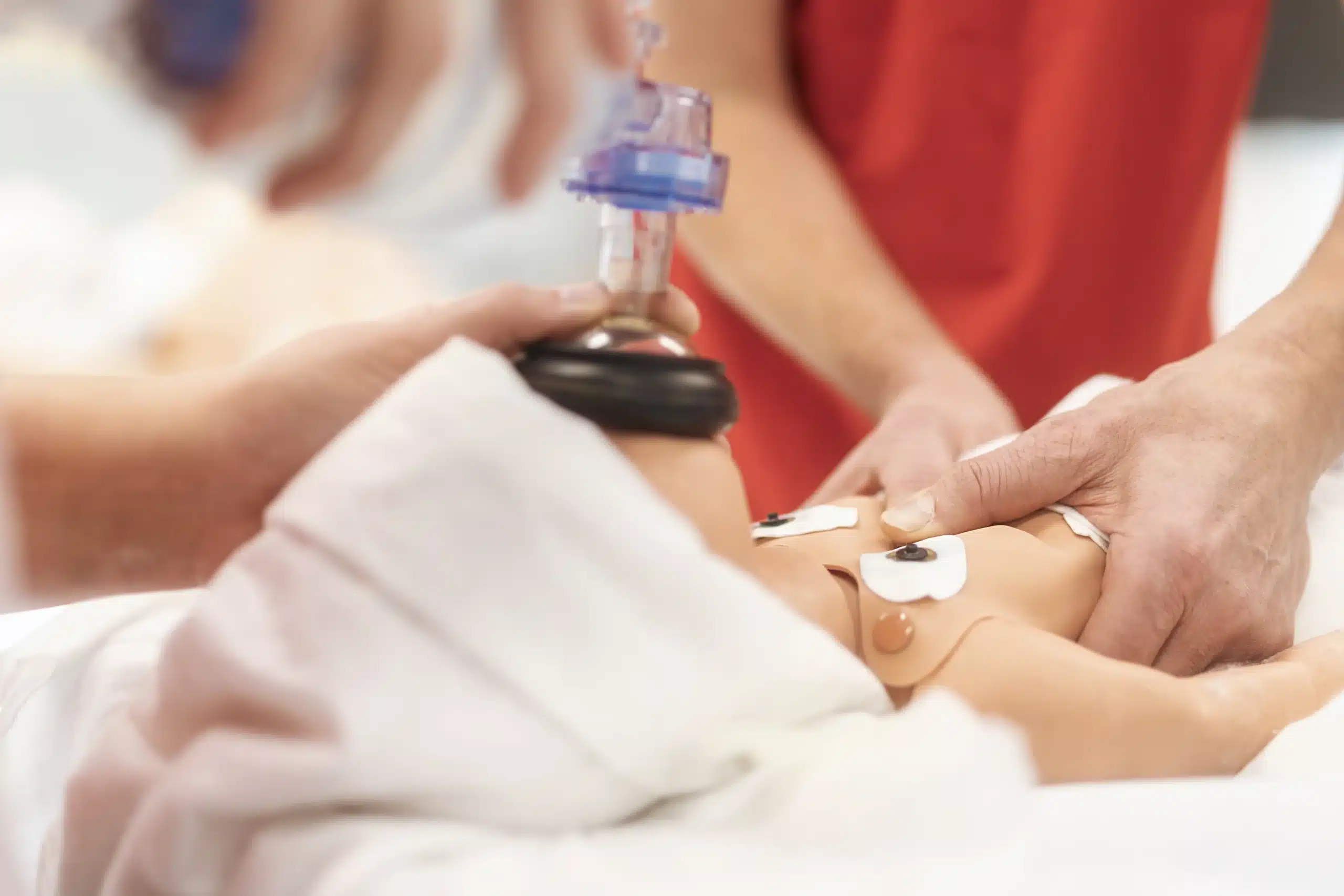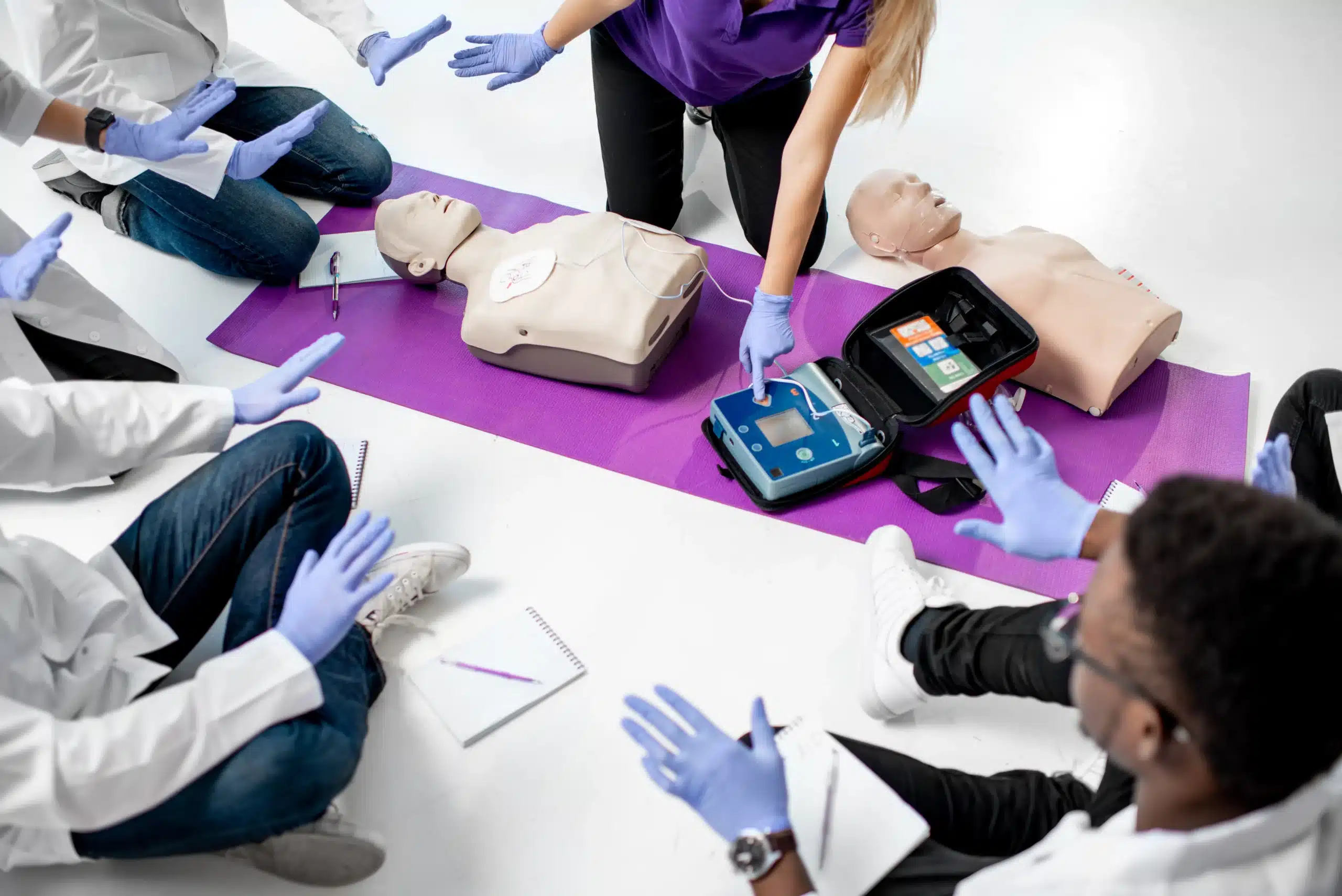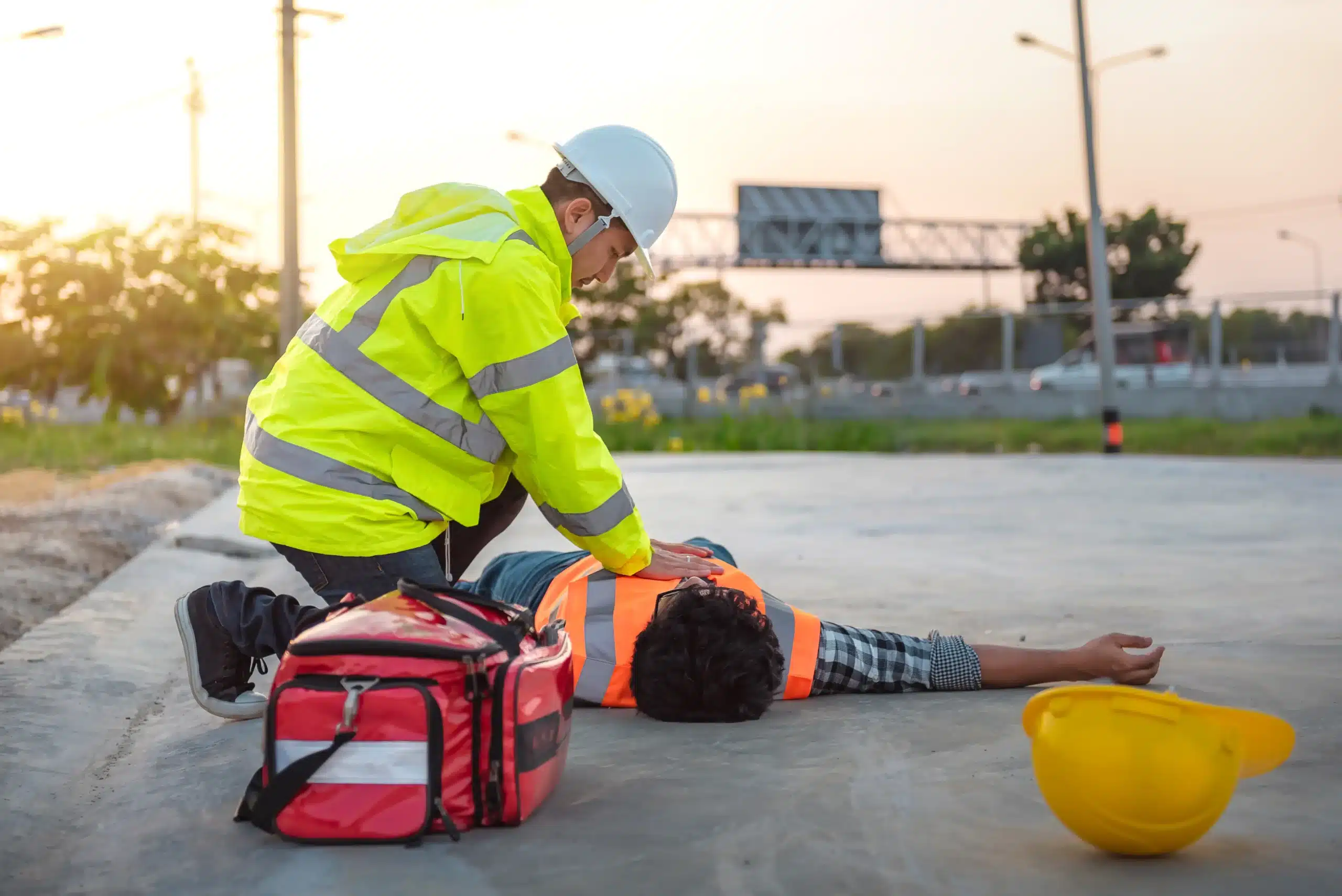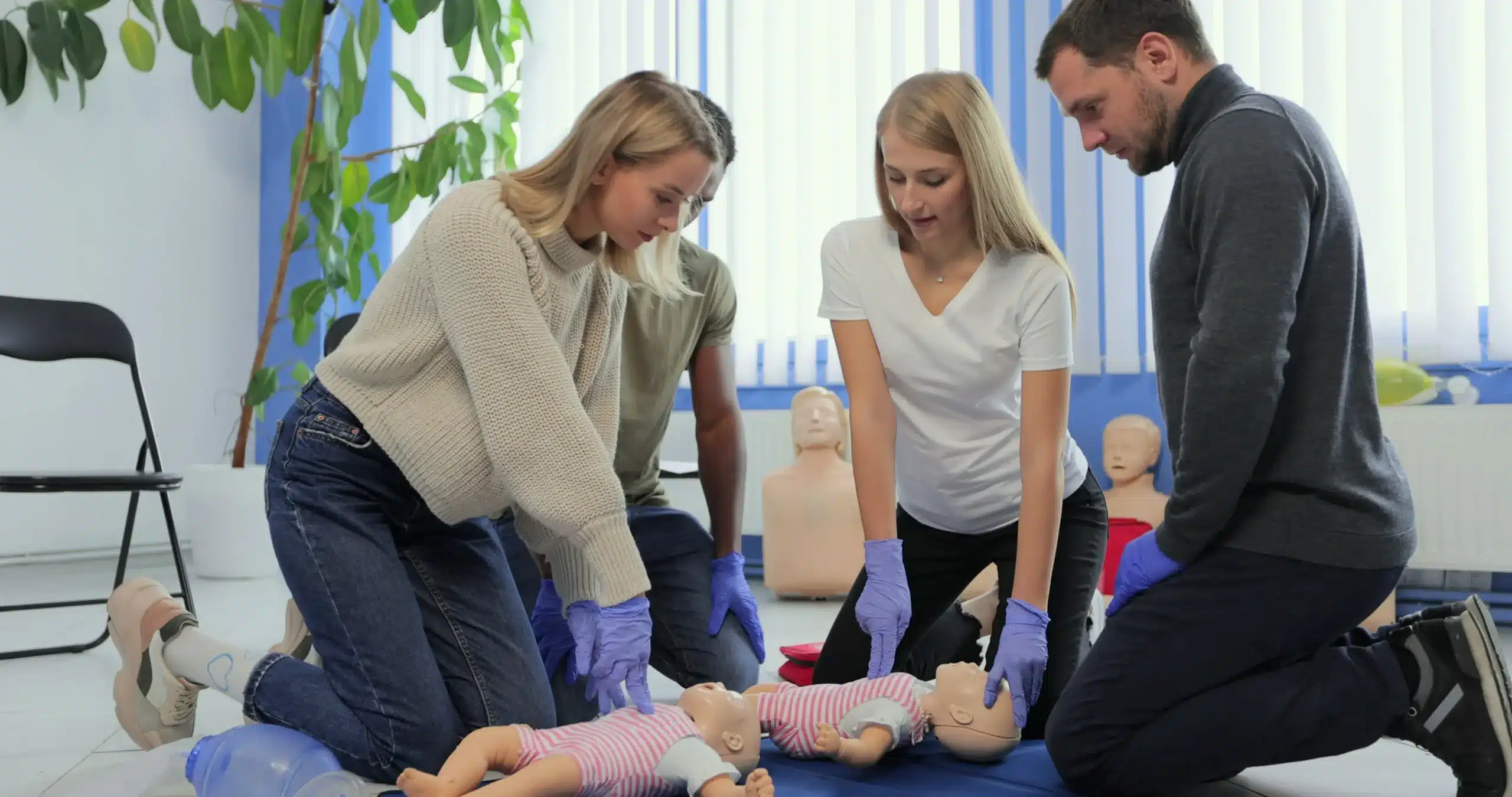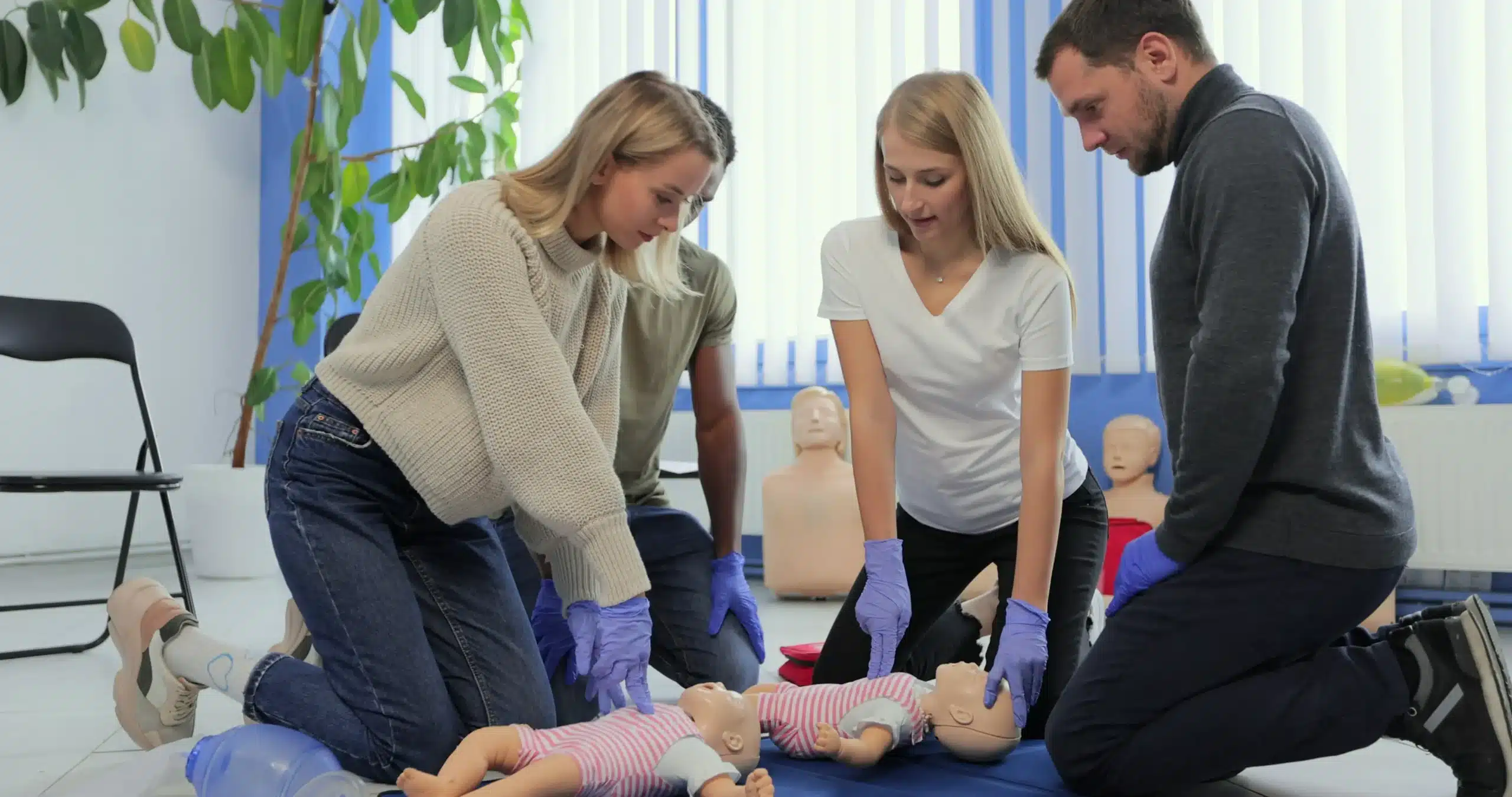Emergencies can happen anytime, anywhere. Are you prepared to respond? Learning CPR can give you the confidence to act quickly and effectively in a crisis. This guide is your one-stop resource for finding the right CPR courses in Oakland. We’ll break down the different types of CPR certifications available, discuss the importance of hands-on training, and provide a list of reputable training providers in the Oakland area. We’ll also cover the costs associated with CPR training and offer tips for maintaining your skills long after you’ve completed your course. Get ready to become a lifesaver – let’s explore CPR courses in Oakland.
Key Takeaways
- CPR certification equips you to handle emergencies: Learning CPR and First Aid, whether for professional requirements or personal preparedness, gives you the skills to respond effectively to various medical situations. Explore different course options to find the best fit.
- Find the right CPR course in Oakland: Consider factors like course type (BLS, ACLS, NRP, etc.), format (online or in-person), and cost when selecting a CPR course. Check with providers like Safety Training Seminars for group discounts and flexible scheduling.
- Maintain your CPR skills for long-term effectiveness: Regularly practicing your CPR techniques after certification ensures you’re always prepared to act confidently in a crisis. Explore resources like refresher courses and online communities to stay up-to-date and motivated.
What is CPR and Why is it Important?
Learning CPR can give you the confidence to respond effectively in a medical emergency. But what exactly does it involve, and who should get certified? Let’s break it down.
What is CPR?
CPR (Cardiopulmonary Resuscitation) is a lifesaving technique used when someone’s breathing or heartbeat has stopped. This can happen due to a heart attack, drowning, or other medical emergencies. CPR involves chest compressions, which manually pump the heart to circulate blood and oxygen to vital organs. Sometimes, it also includes rescue breaths. The goal of CPR is to keep the person alive until professional medical help arrives. You can learn more about CPR techniques from a trusted provider like Safety Training Seminars. Their courses cover everything from basic CPR to advanced certifications.
Who needs CPR certification?
While everyone can benefit from knowing CPR, certain professions require it. Healthcare professionals, first responders, teachers, coaches, and childcare providers often need CPR certification to meet workplace standards. But even if it’s not mandatory for your job, getting certified can empower you to help family, friends, or even strangers in a crisis. The American Heart Association recommends that everyone, regardless of profession, consider CPR training to be prepared for emergencies. Knowing CPR can make a profound difference in someone’s life. Consider checking out group discounts if you’re interested in training with friends or colleagues.
Your Guide to CPR Courses in Oakland
Choosing the right CPR course can feel overwhelming with so many options. This guide breaks down the types of courses available in Oakland, so you can find the perfect fit.
Types of CPR Courses
Basic CPR
Basic CPR courses cover the essentials of adult, child, and infant CPR. You’ll learn how to recognize the signs of a cardiac arrest, perform chest compressions, and provide rescue breaths. These foundational skills empower you to respond effectively in a life-threatening situation. Many basic CPR courses also include training on how to use an automated external defibrillator (AED).
CPR with First Aid
Adding First Aid training to your CPR certification equips you with broader skills to handle various medical emergencies. You’ll learn to manage injuries like cuts, burns, and fractures, and how to respond to sudden illnesses. This combined CPR and First Aid certification makes you a more well-rounded responder in emergencies.
Specialized Courses for Healthcare Providers
Healthcare providers often require more advanced training. Courses like Basic Life Support (BLS) and Advanced Cardiovascular Life Support (ACLS) from the American Heart Association provide specialized knowledge and techniques for medical professionals. These certifications are typically required for doctors, nurses, paramedics, and other healthcare workers. Another important certification for those working with newborns is the Neonatal Resuscitation Program (NRP) certification from the American Academy of Pediatrics.
Online vs. In-Person Training
While online CPR courses offer a convenient way to learn the basics, in-person training provides crucial hands-on experience. Practicing on mannequins with a certified instructor allows you to develop the muscle memory and confidence needed to perform CPR effectively under pressure. In-person classes also offer opportunities to ask questions and receive personalized feedback.
Course Duration and Time Commitment
Most CPR courses can be completed in a single day, typically lasting between four and six hours. First Aid training may add a few more hours to the total time commitment. Look for providers that offer flexible scheduling to accommodate your busy schedule. Safety Training Seminars, for example, offers courses seven days a week.
CPR Course Costs & Value
Understanding CPR course costs and what you get for your money is an important part of choosing the right class. This section breaks down typical pricing, potential discounts, and the materials you can expect.
Course Pricing
In Oakland, a standard CPR certification course typically costs around $64.95. Adding First Aid training to your CPR certification makes the combined CPR and First Aid class approximately $84.95. These courses generally take about three hours to complete, and your certification remains valid for two years. This investment equips you with essential, life-saving skills applicable in various emergency situations.
Group Discounts and Promotions
If you need to train a group, like a workplace team or a group of friends, ask about potential discounts. Many CPR training providers, including Safety Training Seminars, offer reduced rates for group classes. This can be a smart way to get everyone certified and create a more prepared environment. Check with your chosen provider about their group discount policy.
Materials and Equipment
When you register for a CPR course, you’ll receive access to essential learning materials. This often includes online manuals and other resources to support your learning. Many courses also use feedback devices during training. These devices help students refine their CPR technique, leading to more effective CPR in real-life emergencies. Learn more about the American Heart Association’s guidelines for using feedback devices in CPR training.
Certification and Recognition
Choosing the right CPR course is important, but understanding what certification you’ll receive and its validity is equally crucial. This section clarifies what to look for in a CPR certification in Oakland.
Certifications Offered
Safety Training Seminars offers a comprehensive range of American Heart Association (AHA) courses, including CPR, BLS, ACLS, and PALS. These certifications are widely accepted and respected within the healthcare community. You can also find courses that combine CPR with First Aid training, providing a well-rounded skill set for various emergencies. For those specializing in neonatal care, the NRP certification from the American Academy of Pediatrics is also available through Safety Training Seminars.
Certification Validity
Most CPR certifications, including those offered through the AHA, are valid for two years. This timeframe ensures your skills and knowledge remain current and aligned with the latest resuscitation guidelines. Keeping your certification current is essential for maintaining your proficiency in these life-saving techniques.
Recognized Organizations
The AHA is a leading authority in resuscitation training, and their certification is widely recognized by employers and organizations across the country. AHA-certified courses offer standardized, up-to-date training, ensuring you receive high-quality instruction. For healthcare professionals seeking a streamlined certification process, the AHA’s RQI program offers a fast and efficient path to your BLS, ACLS, and PALS certifications. This program emphasizes continuous quality improvement and helps maintain crucial skills for optimal patient care.
Top CPR Course Providers in Oakland
Finding the right CPR course can feel overwhelming, but several excellent providers serve the Oakland area. Whether you’re looking for a basic CPR course or specialized training, this list will help you find the perfect fit.
Safety Training Seminars
Safety Training Seminars offers a comprehensive range of American Heart Association (AHA) courses, including BLS, ACLS, PALS, CPR, and First Aid. They’re known for their commitment to student success and convenient Oakland location, making them a popular choice for those seeking AHA certification. They also offer discounts for groups, making it a cost-effective option for workplaces or community groups. For those concerned about price, check out their low price guarantee.
American Red Cross
The American Red Cross is a trusted name in emergency preparedness, and their Oakland chapter offers various CPR and First Aid training options. Known for their accessible course schedules and established curriculum, the Red Cross is a reliable option for individuals and families seeking certification.
CPR Certification Oakland
With a history of training over 50,000 students, CPR Certification Oakland focuses specifically on AHA-certified CPR and First Aid classes. Their targeted approach allows them to offer specialized instruction and cater to the specific needs of their students.
Oakland CPR Courses
Oakland CPR Courses provides a range of CPR and First-aid classes, including BLS, ACLS, and PALS. Their focus on comprehensive training makes them a good choice for healthcare professionals and anyone seeking in-depth knowledge and skills.
Local Hospitals and Community Centers
Many local hospitals and community centers offer CPR training sessions to community members. These classes are often a convenient and affordable way to learn essential life-saving skills. Check with hospitals and community centers in your neighborhood for upcoming training opportunities.
Get the Most Out of Your CPR Training
CPR training equips you with life-saving skills, so preparing for your course and practicing afterward is essential. Here’s how to maximize your learning experience:
What to Expect During Training
CPR training blends theory and hands-on practice. Expect interactive sessions covering essential concepts like recognizing cardiac arrest, performing chest compressions, and giving rescue breaths. You’ll learn to use automated external defibrillators (AEDs) and practice responding to various emergency scenarios. Your instructor will guide you through each step, offering personalized feedback and support. Remember, learning CPR empowers you to respond effectively in medical emergencies, giving you the confidence to act when needed. For a comprehensive overview of CPR training in Oakland, check out this helpful guide.
Feedback and Learning Tools
Modern CPR courses often incorporate feedback devices and training mannequins. These tools provide real-time feedback on the depth and rate of your compressions, ensuring you develop the proper technique. The American Heart Association emphasizes the importance of these feedback devices in CPR training. Studies show that this targeted feedback significantly improves CPR quality and consistency, increasing the likelihood of positive outcomes during real-life emergencies. Plus, detailed feedback boosts motivation and helps you refine your skills, leading to greater proficiency. You can learn more about the impact of feedback on CPR performance in this research article.
Tips for Success and Skill Maintenance
Consistent practice is key to retaining CPR skills. Schedule short, frequent practice sessions to reinforce what you’ve learned. Visualize scenarios and rehearse your responses to build muscle memory and confidence. Consider refreshing your certification through programs like the RQI program which offers flexible, convenient training options. This approach helps healthcare professionals and anyone needing CPR certification stay proficient and prepared.
Additional Resources and Support
After training, numerous resources can help you maintain your skills and connect with others. The American Red Cross offers a comprehensive participant manual covering first aid, CPR, and AED use. Consider joining support groups or online forums to share experiences and learn from fellow CPR-trained individuals. These communities offer valuable support and resources for managing stress and staying motivated. By actively engaging with these resources, you’ll remain confident and prepared to provide assistance in critical situations.
Related Articles
- Why CPR is Important in Healthcare – Oakland CPR Classes
- CPR Certification in Oakland: Your Guide – Oakland CPR Classes
- Find CPR Classes Near Me: A Complete Guide – Oakland CPR Classes
- CPR Classes in Alameda: Your Complete Guide – Oakland CPR Classes
- Northern CA CPR Directory – Oakland CPR Classes
Frequently Asked Questions
How do I choose the right CPR class for me? Think about your specific needs. If you’re in healthcare, you’ll likely need BLS, ACLS, or PALS. If you’re a teacher, coach, or childcare provider, a basic CPR/First Aid course might be sufficient. Consider whether online or in-person learning suits you best, and how much time you can commit. Location and cost are also important factors. Safety Training Seminars offers various courses and can help you find the right fit.
What’s the difference between CPR and First Aid? CPR focuses on life-threatening situations where someone’s breathing or heartbeat has stopped. First Aid covers a broader range of injuries and illnesses, from cuts and burns to allergic reactions. While distinct, they complement each other, providing a comprehensive skillset for handling emergencies. Many providers offer combined CPR/First Aid courses.
How long is a CPR certification valid, and how do I renew it? Most CPR certifications are valid for two years. Renewing involves taking a refresher course before your current certification expires. This ensures your skills and knowledge are up-to-date. Check with your certifying organization or training provider for renewal options. The RQI program offers a flexible way for healthcare professionals to maintain their certifications.
What if I’m nervous about performing CPR in a real emergency? It’s normal to feel apprehensive. That’s why hands-on practice during training is so important. It helps build muscle memory and confidence. Visualizing scenarios and regularly reviewing your skills can also reduce anxiety. Remember, any attempt at CPR is better than none.
Are there resources available after I complete my training? Absolutely! Many organizations offer online resources, refresher materials, and support networks. Connecting with other CPR-trained individuals can provide ongoing learning and encouragement. Staying engaged with these resources helps maintain your skills and confidence over time.


